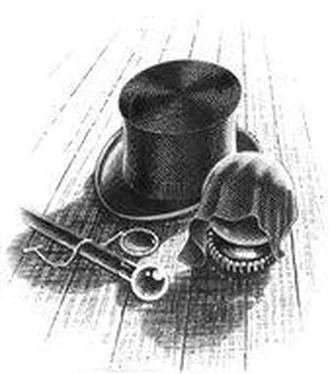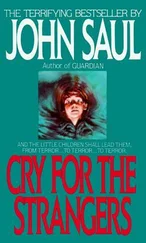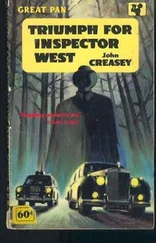John Creasey - Stars For The Toff
Здесь есть возможность читать онлайн «John Creasey - Stars For The Toff» весь текст электронной книги совершенно бесплатно (целиком полную версию без сокращений). В некоторых случаях можно слушать аудио, скачать через торрент в формате fb2 и присутствует краткое содержание. Жанр: Старинная литература, на русском языке. Описание произведения, (предисловие) а так же отзывы посетителей доступны на портале библиотеки ЛибКат.
- Название:Stars For The Toff
- Автор:
- Жанр:
- Год:неизвестен
- ISBN:нет данных
- Рейтинг книги:5 / 5. Голосов: 1
-
Избранное:Добавить в избранное
- Отзывы:
-
Ваша оценка:
- 100
- 1
- 2
- 3
- 4
- 5
Stars For The Toff: краткое содержание, описание и аннотация
Предлагаем к чтению аннотацию, описание, краткое содержание или предисловие (зависит от того, что написал сам автор книги «Stars For The Toff»). Если вы не нашли необходимую информацию о книге — напишите в комментариях, мы постараемся отыскать её.
Stars For The Toff — читать онлайн бесплатно полную книгу (весь текст) целиком
Ниже представлен текст книги, разбитый по страницам. Система сохранения места последней прочитанной страницы, позволяет с удобством читать онлайн бесплатно книгу «Stars For The Toff», без необходимости каждый раз заново искать на чём Вы остановились. Поставьте закладку, и сможете в любой момент перейти на страницу, на которой закончили чтение.
Интервал:
Закладка:
“Glory be,” said Richard Rollison sonorously, “that is exactly right. Fifty it is.”
“But how could she know?” whispered Jolly, from the door.
CHAPTER TWO
Madam Melinska
“Jolly,” said Rollison. “Sir?” said Jolly.
“When did this woman come here and count the trophies?”
“Never, sir, to my knowledge.”
“Whom have you told?”
“No one, sir.”
“Are you quite certain?” asked Rollison. “You might have just mentioned it to someone in passing—”
“Impossible, sir,” said Jolly. “How can it be impossible?”
“Until last night I thought there were forty-six trophies. I had made an error in my card index record several years ago.”
Rollison caught his breath before saying, almost unbelievingly:
“So nobody could have known that the score was forty-nine.”
“No, sir,” Jolly concurred with simple positiveness.
The two men stared at each other without moving, Jolly looking like one who, having roundly declared that he did not believe in ghosts, now found himself face to face with one. They were so still, so silent, that the ticking of the French ormolu clock on the mantelpiece began to sound in Rollison’s ears.
He moved at last, lifting the telephone again very slowly.
“Go and do whatever you have to do in the kitchen, and put your thinking cap on,” he ordered. He dialled 230 1212 as Jolly disappeared; a slow-moving, puzzled Jolly. Almost as soon as he stopped dialling, a girl said quite crossly:
“Scotland Yard.”
“Superintendent Grice, please.”
“ Who? ”
“Mr Grice. Tell me,” said Rollison, “is everything all right at the Yard this morning?”
“All right! the girl exclaimed. “It’s been bedlam. It’s been—you’re through.”
A man with a reassuringly crisp voice said: “Grice.”
“Good morning, Superintendent,” said Rollison, brightly. “This is—”
“Good morning, Rolly,” said Superintendent William Grice. “I hope you haven’t called about Madam Melinska, too.”
Rollison was momentarily stumped for words. During the pause which followed he heard Grice giving instructions; then, suddenly, Grice was back, still brisk, still clear.
“Sorry,” he said. “I was on the other line when you rang.”
“Bill,” said Rollison, “what’s this I hear about bedlam at the Yard this morning?”
“Whoever told you that was right,” said Grice. “We’ve been flooded out with calls from zanies and half-wits—half a minute.” His voice faded, and Rollison pulled the newspaper towards him and once again studied the photograph of Madam Melinska. She must have been a beautiful woman in her youth, he decided, noting the high cheek-bones, the long, lean jaw, the proud tilt of the head. Now she was probably in her early sixties—but she was still beautiful for those who had eyes to see it.
After a moment it dawned on him that he had paid little attention to her companion. Her name, he read, was Mona Lister, and she was Madam Melinska’s assistant. She had a pretty face, and fair, wispy hair hanging to her shoulders—but as he leaned forward to examine the photograph more closely, Grice came back on to the line.
“Sorry, Rolly—what is it you do want, anyhow?”
“I hardly dare tell you,” Rollison said. “What time is Madam Melinska due in Court today?”
“So you are interested in the woman,” said Grice, almost testily. “Around ten o’clock, I should say. But you haven’t a chance.”
“A chance of what?”
“Getting in. There’s a half-mile queue outside the Court already, stretching from both ends of Southcombe Street. Uniform’s had to detail thirty extra men to keep order. We’ve had twenty times the usual number of calls this morning, from threats of murder to threats of eternal damnation, as well as pitying souls who say we should know better than to try to stop the stars in their courses. You didn’t lose any money over Melinska, did you?”
“My sainted Aunt Gloria did.”
“ What ” There was a moment of silence, then Grice gave a throaty chuckle and laughter quivered in his voice as he went on: “That’s my best moment of the morning; I didn’t think I’d laugh at anything today. But seriously—you won’t get in.”
“Not even disguised as a policeman?”
“No,” said Grice firmly. “I shall not spirit you in. There simply won’t be room.” He paused for a moment, before asking in a puzzled way: “Did you realize what a fantastic public interest there was in astrologers and fortune-tellers?”
“I’m learning,” said Rollison. “Thanks, Bill. See you in Court.”
He rang off, and after a long spell of cogitation, went through a narrow passage and into the kitchen, where Jolly, resplendent in green baize apron, was neatly dropping crisp rings of onion into a flour-dusted dish.
“Ha, hot-pot,” said Rollison.
“As I am not sure what time you will be back, sir.”
“No. Grice says that Madam Melinska is attracting film-star crowds.”
“So I would expect, sir. Have you any special instructions?”
“Yes. Find out if anyone has been here in the past few weeks who knows Madam Melinska or Mona whatever-her-name-is, and who can count up to forty-nine. Some people are natural counters of heads and trophies. I knew a man who never addressed a public meeting without estimating the number of victims in front of him, and—”
“Quite so, sir.”
“It’s time I went, is it?” said Rollison. “Very well. Expect me when you see me.”
It was a rare, golden morning in May. The sun, bright and venturesome, found improbable gaps and cracks through which to penetrate. The milkman, the postman and somebody’s daily help wished Rollison the best of good mornings. A day, he reflected, when it was good to be alive. The West London Magistrates Court in West Kensington was too far away to walk to, but parking would be impossible, and he turned out of Gresham Terrace towards Piccadilly and hailed a taxi; it stopped.
“Nice morning, Guv’nor!”
“What a happy place the world is this morning,” remarked Rollison.
“For some folk,” observed the taxi-driver, sagely. “Where to, sir?”
“As near West London Magistrates Court as you can get.”
“I’ll do my best, sir,” said the taxi-driver. “But it may take some time. Just come from that direction, I have—never seen crowds like it, the streets are packed solid.”
The taxi-driver was right.
The crowds stretched all along Southcombe Street, people standing five and six abreast, filling every corner and doorway, blocking the pavements and overflowing into the road. Most were women, but here and there a long-haired, Edwardian-trousered youth waited with the soul-starved patience of the empty-headed. There was no forward movement in the queue, and there was likely to be none, for the West London Magistrates Court was no different from other London police courts; the public gallery was large enough to take only a handful.
Rollison saw the extra police—six were standing close to the entrance. As he made his way towards it, a plain-clothes detective from the Division approached him.
“You here on business?”
“Serious business,” Rollison answered.
“ What business?” The detective, big and burly, drew closer, and said sotto voce , “Nip in quick, Mr Rollison.” Aloud, he complained: “Why don’t they tell me?”
Rollison went inside gratefully.
He knew the sedate manner of warders and policemen and court officials. It was traditional that there should be quietness if not complete silence. So it was now—except that by the door leading towards the public benches and the Press box an unusual crowd of eager-faced men and women muttered among themselves under the condemnatory gaze of two policemen and a magistrate’s clerk. Over their heads Rollison saw a solid mass of people inside the panelled room, and constant movement where usually there was dull sedateness. A red-faced court policeman was struggling to keep some kind of order. Catching sight of Rollison, he drew a hand across his sweaty brow.
Читать дальшеИнтервал:
Закладка:
Похожие книги на «Stars For The Toff»
Представляем Вашему вниманию похожие книги на «Stars For The Toff» списком для выбора. Мы отобрали схожую по названию и смыслу литературу в надежде предоставить читателям больше вариантов отыскать новые, интересные, ещё непрочитанные произведения.
Обсуждение, отзывы о книге «Stars For The Toff» и просто собственные мнения читателей. Оставьте ваши комментарии, напишите, что Вы думаете о произведении, его смысле или главных героях. Укажите что конкретно понравилось, а что нет, и почему Вы так считаете.












